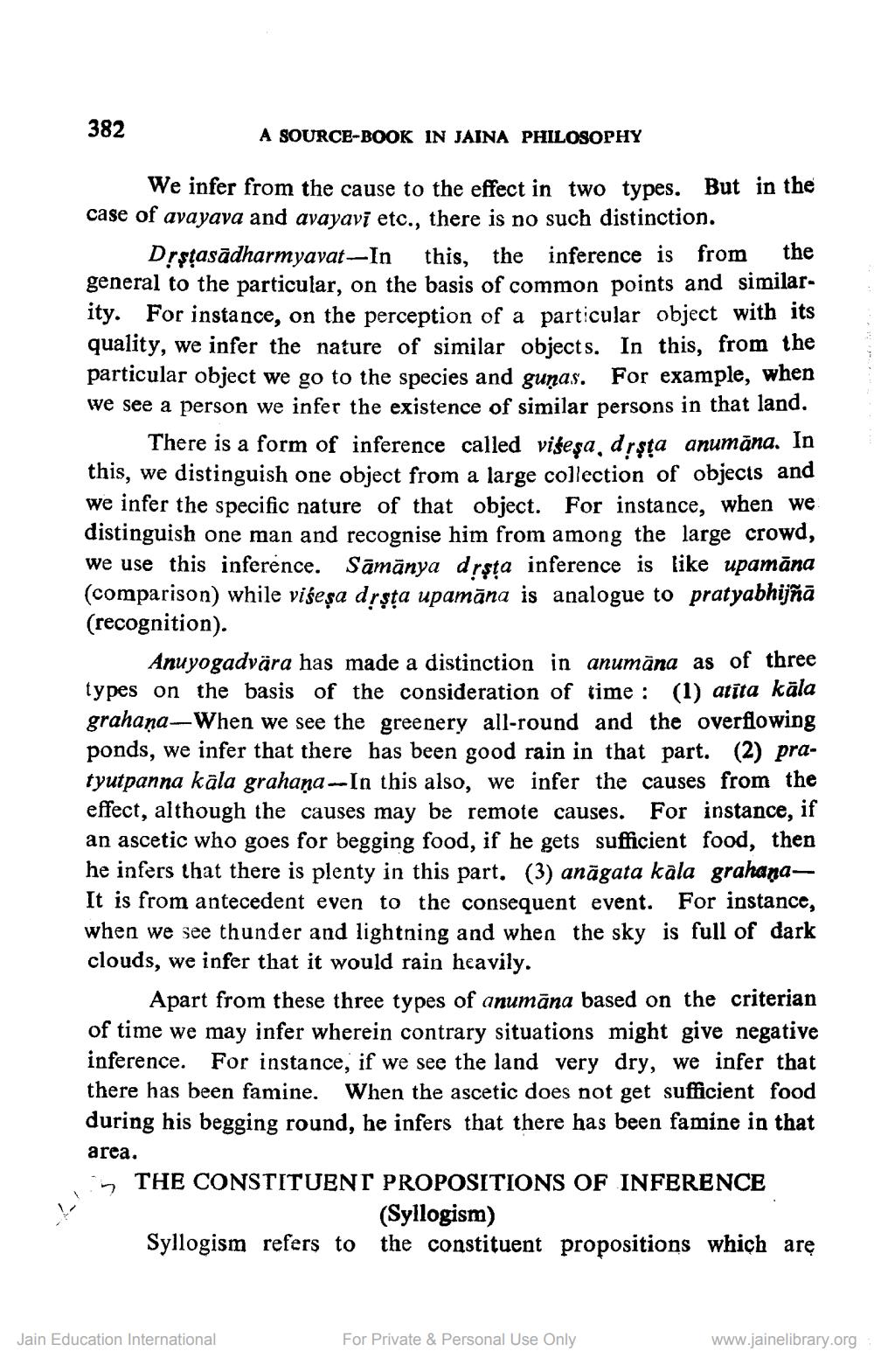________________
382
A SOURCE-BOOK IN JAINA PHILOSOPHY
We infer from the cause to the effect in two types. But in the case of avayava and avayavi etc., there is no such distinction.
Drsțasādharmyavat-In this, the inference is from the general to the particular, on the basis of common points and similarity. For instance, on the perception of a particular object with its quality, we infer the nature of similar objects. In this, from the particular object we go to the species and gunas. For example, when we see a person we infer the existence of similar persons in that land.
There is a form of inference called visesa, drsta anumāna. In this, we distinguish one object from a large collection of objects and we infer the specific nature of that object. For instance, when we distinguish one man and recognise him from among the large crowd, we use this inference. Sāmānya drsta inference is like upamāna (comparison) while viseșa drsta upamāna is analogue to pratyabhijñā (recognition).
Anuyogadvära has made a distinction in anumāna as of three types on the basis of the consideration of time : (1) atita kāla grahaņa-When we see the greenery all-round and the overflowing ponds, we infer that there has been good rain in that part. (2) pratyutpanna kala grahana-In this also, we infer the causes from the effect, although the causes may be remote causes. For instance, if an ascetic who goes for begging food, if he gets sufficient food, then he infers that there is plenty in this part. (3) anāgata kala grahanaIt is from antecedent even to the consequent event. For instance, when we see thunder and lightning and when the sky is full of dark clouds, we infer that it would rain heavily.
Apart from these three types of anumāna based on the criterian of time we may infer wherein contrary situations might give negative inference. For instance, if we see the land very dry, we infer that there has been famine. When the ascetic does not get sufficient food during his begging round, he infers that there has been famine in that area. in THE CONSTITUENT PROPOSITIONS OF INFERENCE
(Syllogism) Syllogism refers to the constituent propositions which are
Jain Education International
For Private & Personal Use Only
www.jainelibrary.org




